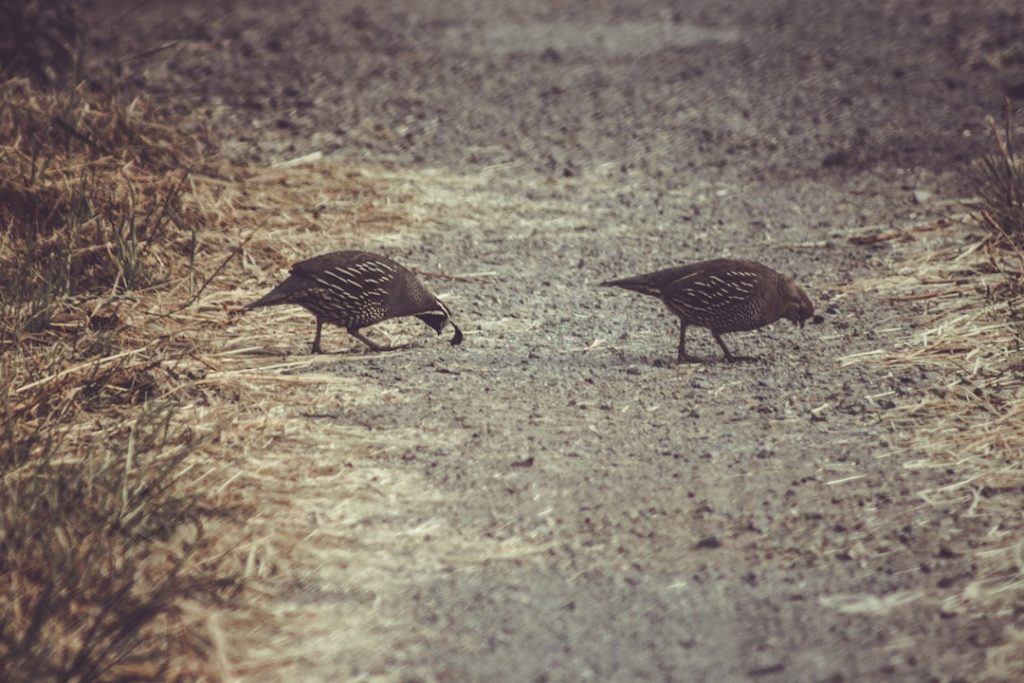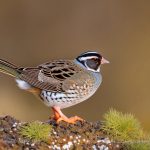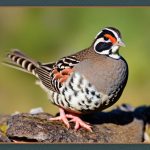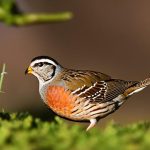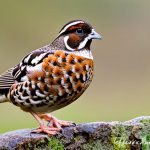Bobwhite quail, also known as northern bobwhite, are small, ground-dwelling birds native to North America. They are popular game birds and are often kept for their meat and eggs. Bobwhite quail are known for their distinctive call, which sounds like “bob-white” and can be heard throughout their natural habitat. These birds are social and prefer to live in groups, making them an interesting addition to a backyard or farm setting.
Bobwhite quail are relatively easy to care for and can be a rewarding addition to a homestead or small farm. They are known for their hardiness and adaptability, making them a good choice for beginners or experienced bird keepers alike. With the right knowledge and care, bobwhite quail can thrive in a domestic setting, providing entertainment, eggs, and meat for their keepers.
Key Takeaways
- Bobwhite quail are popular game birds known for their distinctive call and are often kept for hunting and conservation purposes.
- Regulations on keeping bobwhite quail vary by state and it is important to check local laws before acquiring or raising them.
- Permits and licenses may be required to keep bobwhite quail, and it is important to obtain the necessary documentation before starting a quail operation.
- Housing for bobwhite quail should provide adequate space, protection from predators, and proper ventilation, while care should include regular cleaning and monitoring of the birds’ health.
- Feeding bobwhite quail a balanced diet of commercial quail feed, supplemented with greens and insects, is essential for their health and productivity. Regular veterinary care is also important for maintaining the health of bobwhite quail.
Regulations on Keeping Bobwhite Quail
Before deciding to keep bobwhite quail, it is important to be aware of the regulations and laws surrounding their ownership. In many areas, keeping bobwhite quail is subject to specific regulations and permits, especially if they are being kept for hunting purposes. It is important to research and understand the local laws and regulations regarding the keeping of bobwhite quail before acquiring any birds.
In some areas, a hunting license or game bird permit may be required to keep bobwhite quail. Additionally, there may be specific regulations regarding the number of birds that can be kept, as well as rules about releasing captive-bred birds into the wild. It is important to check with local wildlife authorities or game commissions to ensure that all legal requirements are met before acquiring bobwhite quail.
Permits and Licenses for Keeping Bobwhite Quail
In many areas, keeping bobwhite quail requires specific permits and licenses. These permits are typically issued by state wildlife agencies or game commissions and are designed to regulate the keeping of game birds for hunting purposes. The specific requirements for permits and licenses can vary depending on the location and intended use of the birds.
For example, in some states, a game bird breeder’s license may be required to keep bobwhite quail for breeding purposes. This license may have specific requirements for housing, care, and record-keeping, and may be subject to regular inspections by wildlife authorities. Additionally, if the birds are being kept for hunting purposes, a separate hunting license or game bird permit may be required. It is important to research the specific requirements for permits and licenses in your area before acquiring bobwhite quail.
Housing and Care Requirements for Bobwhite Quail
Proper housing and care are essential for the health and well-being of bobwhite quail. These birds require a secure and predator-proof enclosure that provides ample space for exercise and social interaction. A variety of housing options can be suitable for bobwhite quail, including aviaries, chicken coops, or specially designed quail pens.
The housing should provide protection from predators such as raccoons, foxes, and birds of prey, as well as shelter from extreme weather conditions. The enclosure should also include areas for dust bathing, perches for roosting, and nesting boxes for egg-laying. It is important to provide clean bedding material such as straw or wood shavings, which should be changed regularly to maintain a clean and healthy environment.
In addition to proper housing, bobwhite quail require a balanced diet and access to clean water at all times. They are omnivorous birds that eat a variety of seeds, grains, insects, and green vegetation. A commercial game bird feed can provide a balanced diet for bobwhite quail, supplemented with fresh fruits and vegetables. It is important to monitor the birds’ health and behavior to ensure that their nutritional needs are being met.
Feeding and Nutrition Guidelines for Bobwhite Quail
Feeding and nutrition are important aspects of caring for bobwhite quail. These birds require a balanced diet that provides essential nutrients for growth, reproduction, and overall health. A commercial game bird feed formulated specifically for quail can provide a good base diet for bobwhite quail, supplemented with fresh fruits, vegetables, and protein sources such as mealworms or crickets.
In addition to a balanced diet, it is important to provide access to clean water at all times. Bobwhite quail are active birds that require ample hydration, especially during hot weather or when laying eggs. Water should be provided in shallow dishes or waterers that are easily accessible to the birds.
It is important to monitor the birds’ feeding behavior and adjust their diet as needed to ensure that their nutritional needs are being met. For example, during the breeding season, hens may require additional calcium to support egg production. Providing crushed oyster shells or a calcium supplement can help meet this need. Additionally, it is important to monitor the birds’ body condition and adjust their diet as needed to prevent obesity or malnutrition.
Health and Veterinary Care for Bobwhite Quail
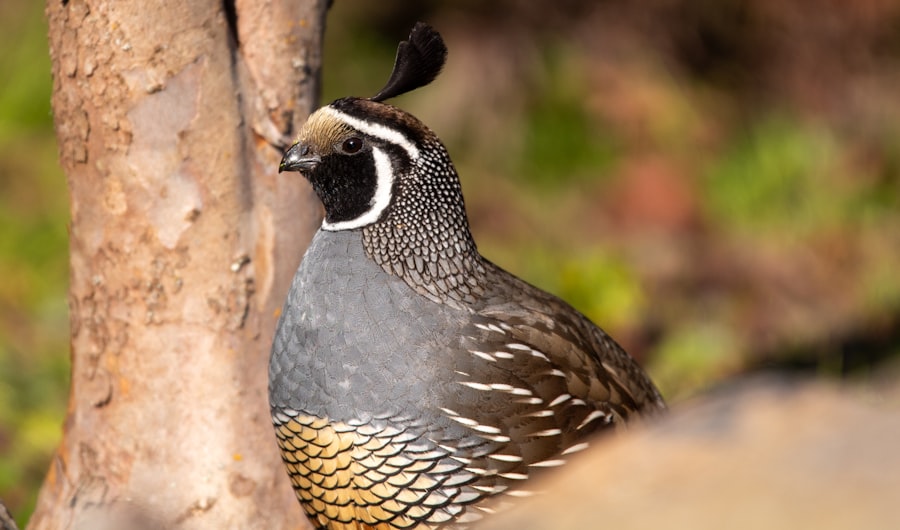
Maintaining the health of bobwhite quail is essential for their well-being and productivity. Regular observation of the birds’ behavior and appearance can help identify potential health issues early on. Common signs of illness in bobwhite quail include lethargy, decreased appetite, abnormal droppings, respiratory symptoms, or changes in feather condition.
In addition to regular observation, it is important to provide a clean and sanitary environment for the birds. This includes regular cleaning of the enclosure, providing fresh bedding material, and ensuring access to clean water at all times. Proper hygiene can help prevent the spread of disease and parasites among the flock.
In the event of illness or injury, it is important to seek veterinary care from a professional with experience in avian medicine. A veterinarian can provide a thorough examination of the birds, diagnose any health issues, and recommend appropriate treatment options. It is important to establish a relationship with a veterinarian before any health issues arise so that prompt care can be provided if needed.
Conclusion and Resources for Keeping Bobwhite Quail
In conclusion, keeping bobwhite quail can be a rewarding experience for bird enthusiasts and homesteaders alike. These hardy and adaptable birds can thrive in a domestic setting with proper housing, care, and nutrition. However, it is important to be aware of the regulations and laws surrounding the keeping of bobwhite quail in your area, as well as the specific requirements for permits and licenses.
For those interested in keeping bobwhite quail, there are many resources available to provide guidance on housing, care, nutrition, and health management. Local wildlife authorities or game commissions can provide information on legal requirements for keeping bobwhite quail, as well as resources for obtaining permits and licenses. Additionally, there are many online forums, books, and publications dedicated to the care and management of bobwhite quail that can provide valuable information for new keepers.
Overall, with proper knowledge and care, bobwhite quail can be a valuable addition to a backyard or farm setting, providing entertainment, eggs, and meat for their keepers. By understanding the specific needs of these birds and providing appropriate housing, nutrition, and veterinary care when needed, keepers can enjoy the benefits of keeping bobwhite quail while ensuring their health and well-being.
If you’re interested in learning more about the laws and regulations surrounding the keeping of bobwhite quail in Arkansas, you may also want to check out this informative article on what vegetables do quails eat. Understanding the dietary needs of quails is essential for their health and well-being, and this article provides valuable insights into their nutritional requirements.
FAQs
What are the regulations for keeping bobwhite quail in Arkansas?
In Arkansas, it is legal to keep bobwhite quail as long as you obtain the necessary permits and follow the regulations set by the Arkansas Game and Fish Commission.
Do I need a permit to keep bobwhite quail in Arkansas?
Yes, you need a permit from the Arkansas Game and Fish Commission to keep bobwhite quail. The permit requirements may vary depending on the purpose of keeping the quail, such as for breeding, hunting, or educational purposes.
What are the regulations for breeding bobwhite quail in Arkansas?
If you plan to breed bobwhite quail in Arkansas, you must obtain a breeder permit from the Arkansas Game and Fish Commission. The commission may have specific regulations regarding the housing, care, and transportation of the quail.
Can I hunt bobwhite quail in Arkansas?
Yes, hunting bobwhite quail is allowed in Arkansas during the designated hunting seasons. Hunters must obtain the necessary hunting licenses and follow the regulations set by the Arkansas Game and Fish Commission.
Are there any restrictions on the sale of bobwhite quail in Arkansas?
The sale of bobwhite quail in Arkansas is regulated by the Arkansas Game and Fish Commission. Sellers must comply with the commission’s regulations and may need to obtain a permit for selling quail.
What should I do if I find injured or orphaned bobwhite quail in Arkansas?
If you come across injured or orphaned bobwhite quail in Arkansas, it is best to contact the Arkansas Game and Fish Commission or a licensed wildlife rehabilitator for guidance on how to properly care for the quail or to arrange for their rehabilitation.
Meet Walter, the feathered-friend fanatic of Florida! Nestled in the sunshine state, Walter struts through life with his feathered companions, clucking his way to happiness. With a coop that’s fancier than a five-star hotel, he’s the Don Juan of the chicken world. When he’s not teaching his hens to do the cha-cha, you’ll find him in a heated debate with his prized rooster, Sir Clucks-a-Lot. Walter’s poultry passion is no yolk; he’s the sunny-side-up guy you never knew you needed in your flock of friends!

